Our special report explores how the internet not only makes it possible for authoritarian regimes to monitor citizens’ activities as never before, but also makes censorship acceptable, and even respectable, in democracies.
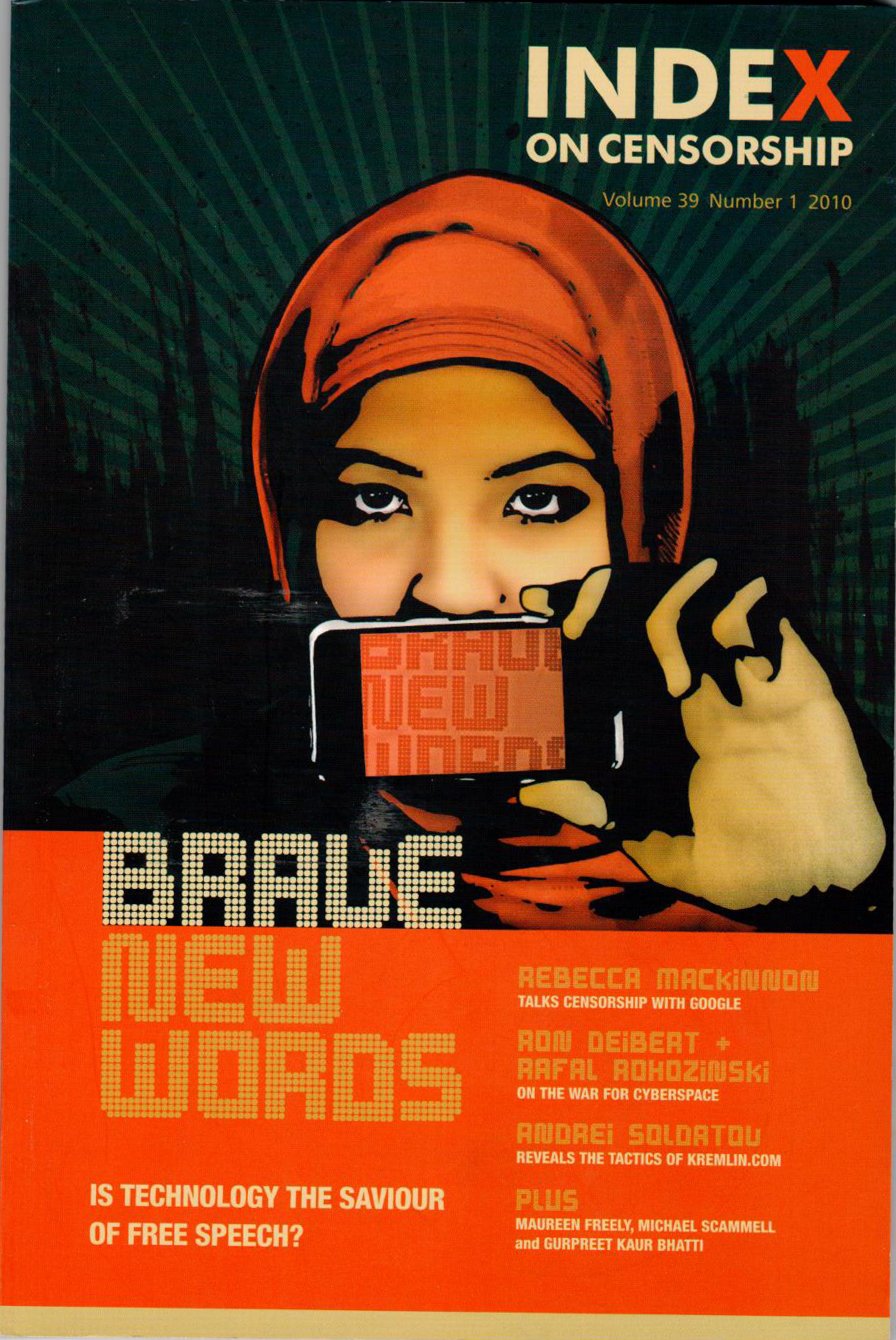

Our special report explores how the internet not only makes it possible for authoritarian regimes to monitor citizens’ activities as never before, but also makes censorship acceptable, and even respectable, in democracies.

Impunity is an urgent issue facing press freedom campaigners. Joel Simon of the Committee to Protect Journalists outlines a roadmap for action
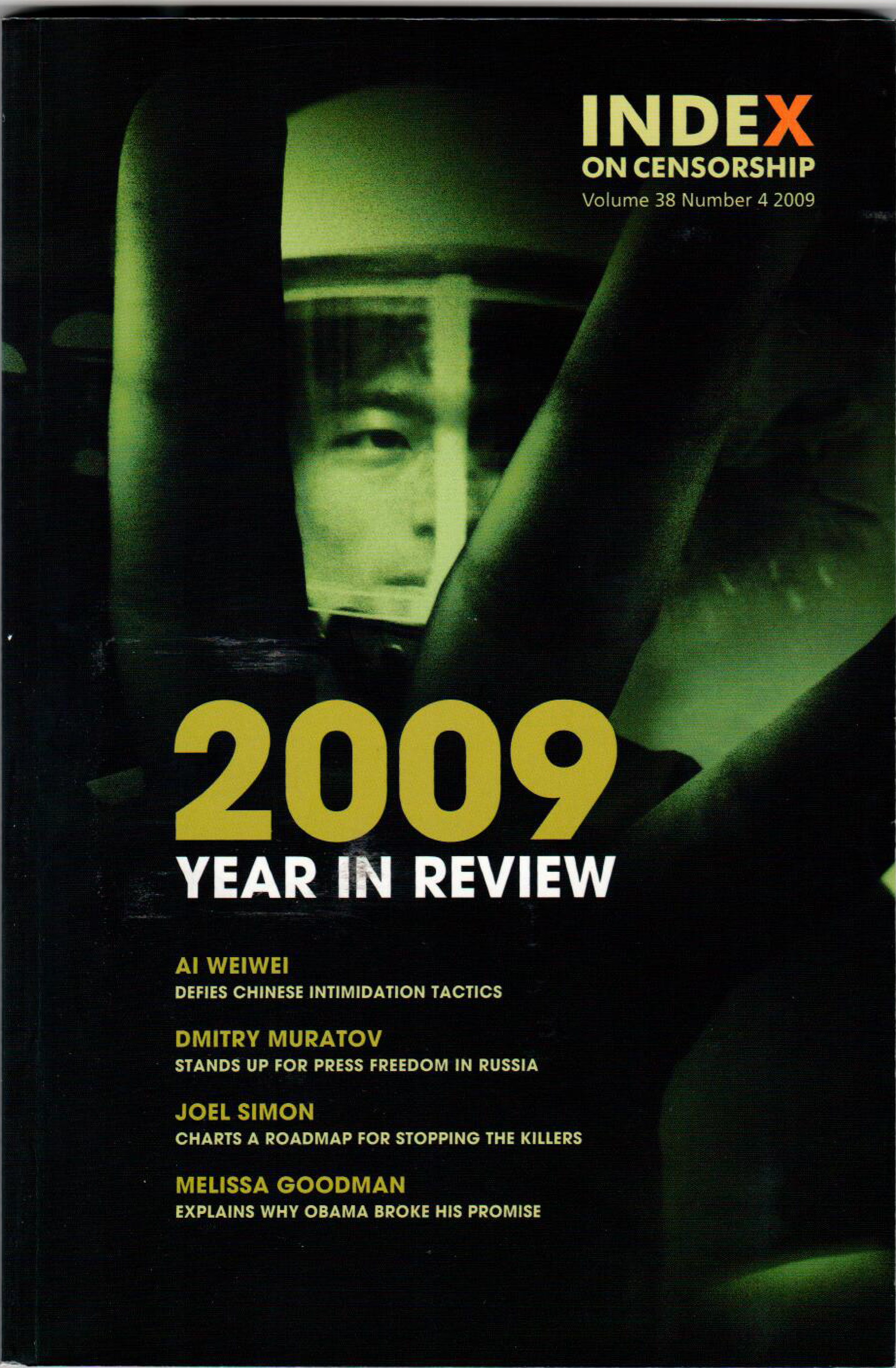
Index on Censorship looks back on the highs and lows of the year. Editors, journalists, artists and scholars on the frontline review the challenges for free speech around the world.
On 17 November 1989, the police crushed a peaceful student demonstration in Prague. The crackdown led to national protests, culminating in a general strike. Within 11 days, the mass demonstrations had overthrown the communist regime. Václav Havel was elected president on 29 December. Jan Bubeník became the youngest politician in the new government. He spoke to Jo Glanville
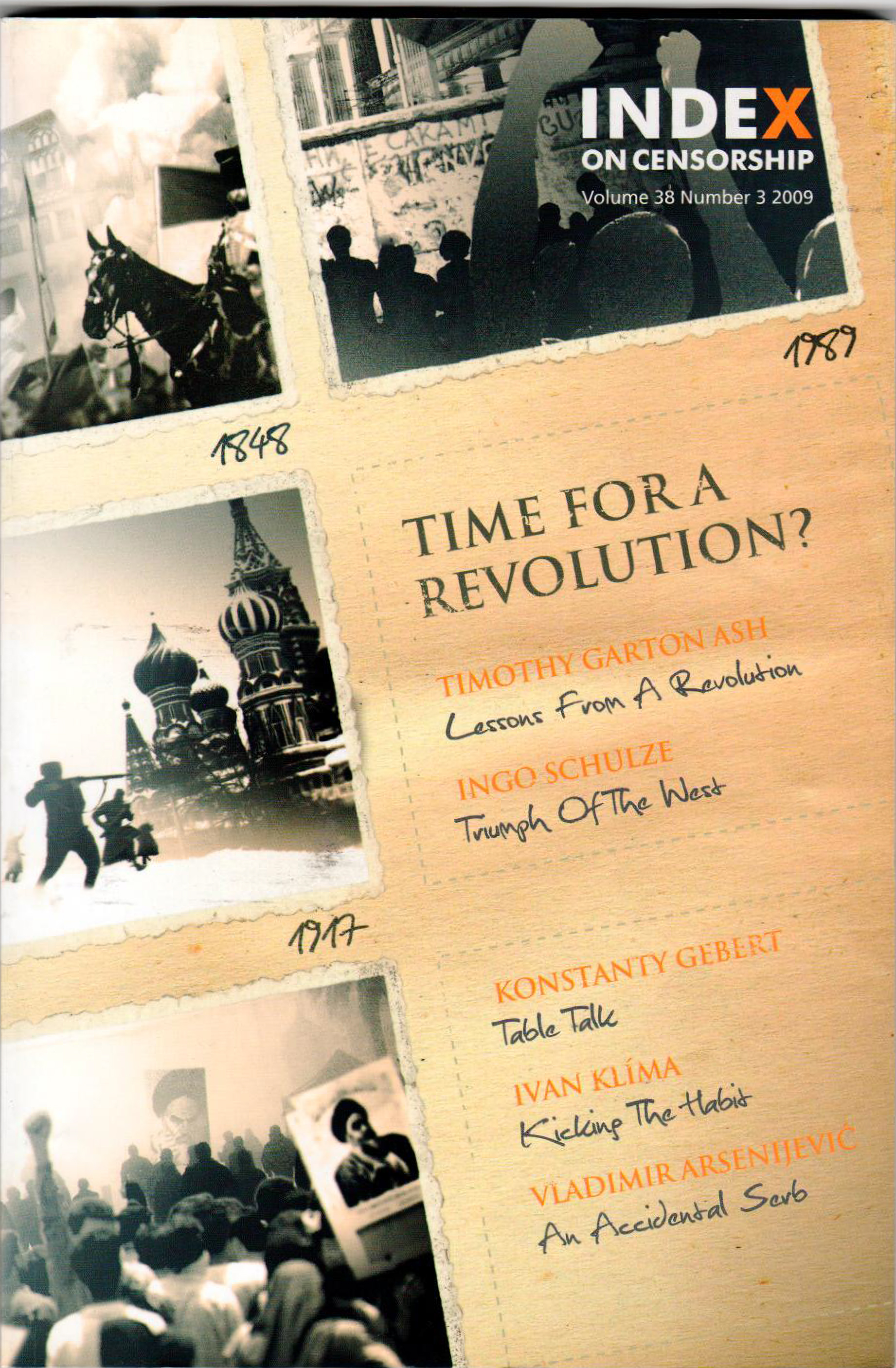
Is it time for another revolution? Index on Censorship examines the legacy of the fall of the Berlin Wall.
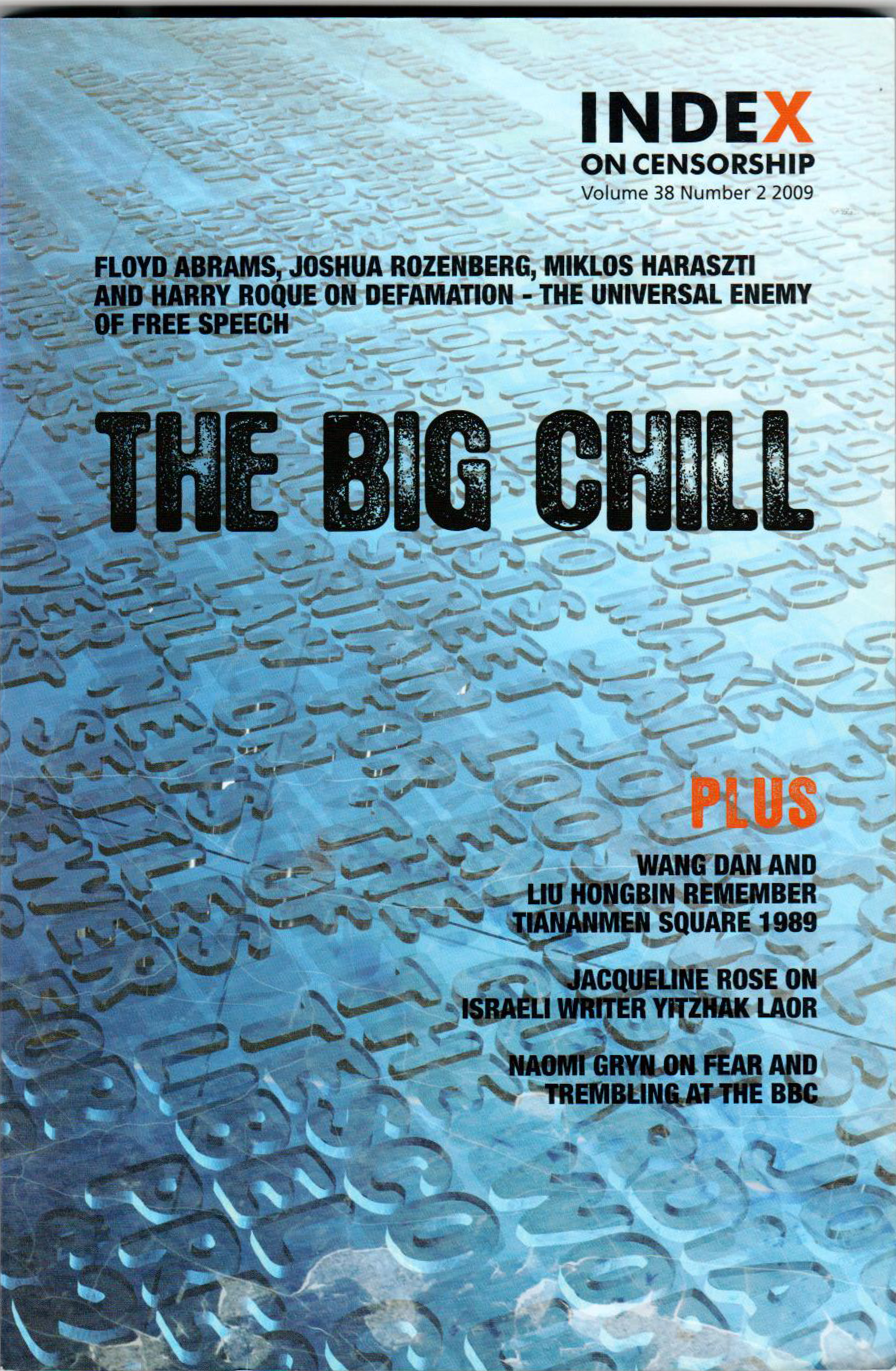
From London to Bangkok, defamation laws are a global chill on free speech. For repressive regimes, they are a common tool for silencing dissent; in liberal democracies, they remain one of the greatest challenges to press freedom.
English libel law turns US protection for free speech on its head. Floyd Abrams considers how the UK became an international libel tribunal English defamation law is under fire. Last July, the United Nations Human Rights Committee expressed...
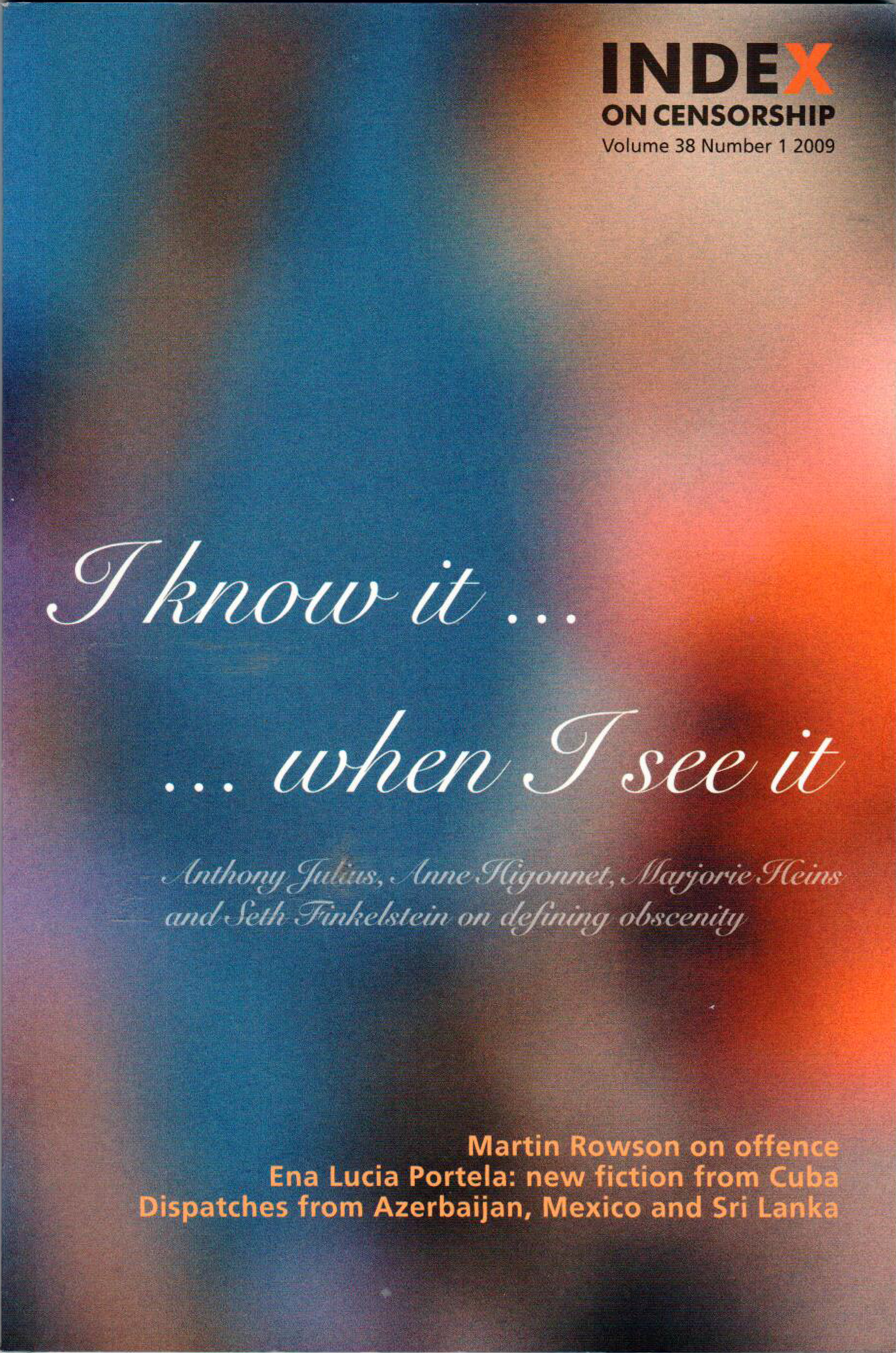
As the first prosecution of the written word in more than 30 years takes place in the UK, Index assesses the landscape of obscenity.

Author and barrister Sir John Mortimer died this morning at the age of 85. Sir John was a great champion of free expression, defending many writers and publishers against obscenity charges in the 1970s. In one of his last interviews, he talked to...

In 1992, Harold Pinter talked to Index on Censorship editor Andrew Graham-Yooll about his struggle to publish 'obscene words to describe obscene acts and obscene attitudes'. Indexoncensorship.org here reproduces the article. American Football (a...
A quarterly journal set up in 1972, Index on Censorship magazine has published oppressed writers and refused to be silenced across hundreds of issues.
The brainchild of the poet Stephen Spender, and translator Michael Scammell, the magazine’s very first issue included a never-before-published poem, written while serving a sentence in a labour camp, by the Soviet dissident Aleksandr Solzhenitsyn, who went on to win a Nobel prize later that year.
The magazine continued to be a thorn in the side of Soviet censors, but its scope was far wider. From the beginning, Index declared its mission to stand up for free expression as a fundamental human right for people everywhere – it was particularly vocal in its coverage of the oppressive military regimes of southern Europe and Latin America but was also clear that freedom of expression was not only a problem in faraway dictatorships. The winter 1979 issue, for example, reported on a controversy in the United States in which the Public Broadcasting Service had heavily edited a documentary about racism in Britain and then gone to court attempting to prevent screenings of the original version. Learn more.